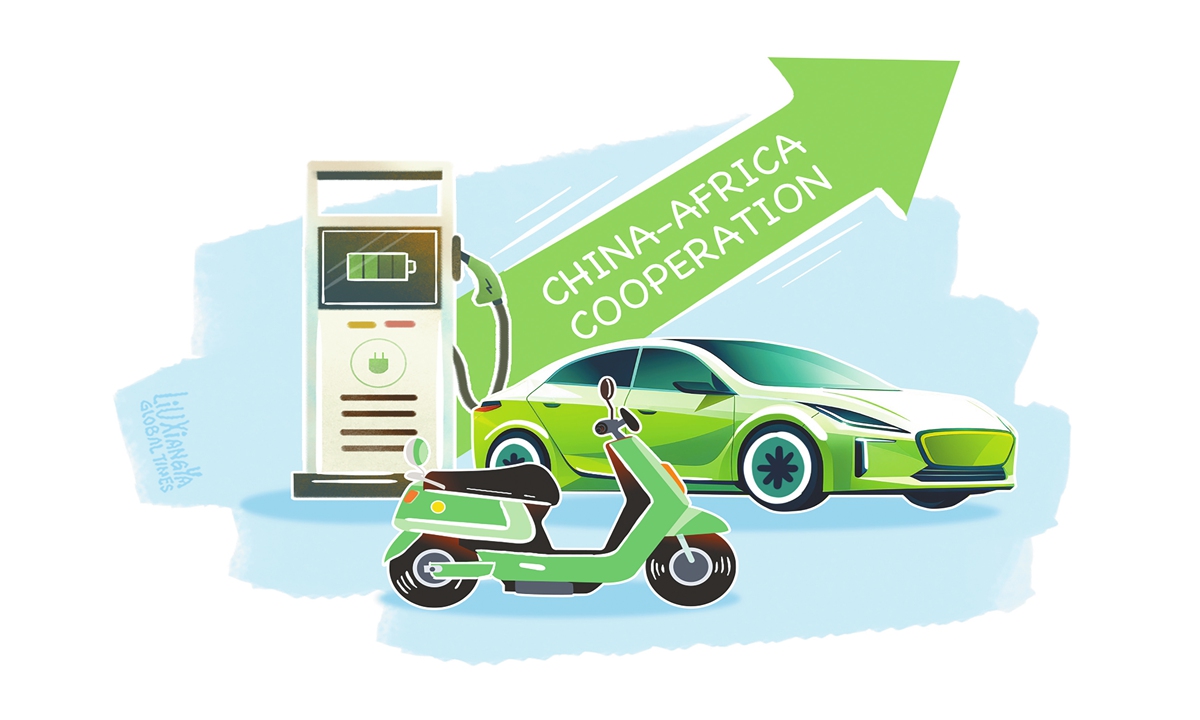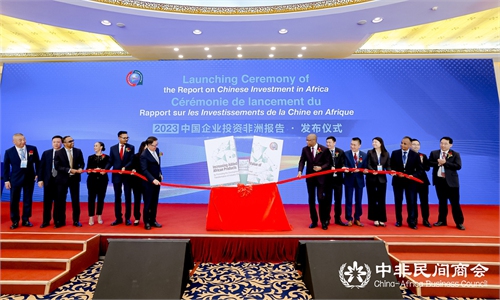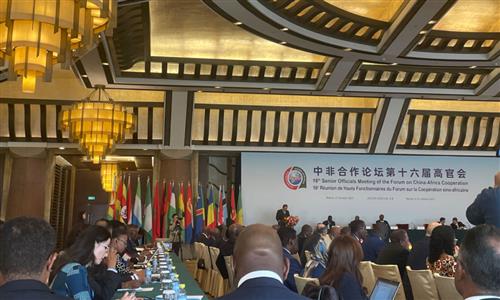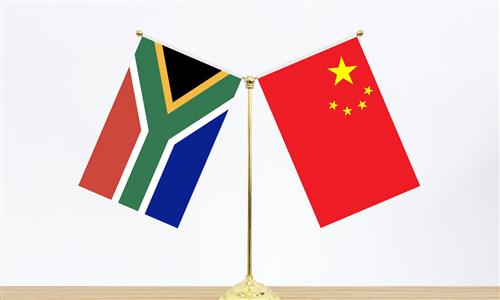
Illustration: Liu Xiangya/GT
Many African countries have responded to climate change by ramping up their efforts to reduce carbon emissions. Amid their transition toward a low-carbon, climate-resilient and environmentally sustainable economy, economic complementarity between China and Africa has created potential for cooperation in the new-energy industries, especially the electric vehicle (EV) sector.However, that type of closer cooperation is something that the West may not want to see. Some Western media outlets have recently published articles about China's increasing presence in Africa's EV market. The latest example is VOA's report claiming that China-made EVs have made serious "inroads" into Africa, although EVs from the US and the EU are rarely seen.
Some Western commentators have spread a false narrative that increased tariffs on Chinese EVs by Western countries have left Chinese carmakers looking for other markets, including Africa. They intend to create an illusion that products rejected by developed countries which are using protectionist measures are being shipped to Africa.
The intention is clear, as they have tried to crack down on Chinese companies and give Western firms an unfair advantage over competitors. However, sour-grapes remarks and Washington's false overcapacity narrative won't impede China's cooperation with African countries, which is mutually beneficial.
The global transformation toward a green economy will create huge market opportunities. Although Washington's suppression of China has increased, economic and trade relations between China and Africa show strong endogenous momentum, which means that there is huge scope for mutually beneficial cooperation.
African countries are advancing their electric transportation development in a different way from many developed countries. In some Sub-Saharan African countries, access to reliable and affordable electricity remains a challenge. So, many African nations have their own unique traits, behaviors and attitudes toward green transformation.
For instance, a growing start-up ecosystem for EVs, focusing particularly on electric two-wheelers, is emerging in Sub-Saharan Africa.
It is absurd to say that Chinese companies redirect products rejected by Western economies to African countries. EV cooperation between China and Africa is in line with Africa's own development needs, which is why Chinese companies have been able to expand their influence in Africa.
Chinese companies can adapt to Africa's needs, by showing their efficiency and flexibility. Nigeria is a typical example. Motorcycles are an important means of transport in the country.
Now, a growing need for electric motorcycles has generated a boom in business opportunities for Chinese motorcycle manufacturers, which are seeking growth worldwide.
The competitiveness of China-made electric motorcycles stems from China's advantages in efficient production and continuous technological innovation, which may help Chinese companies build their popularity, brand recognition and trustworthiness.
Given the complex and uneven economic landscape of Africa, EV cooperation should, more realistically, be implemented step-by-step with patience. A key is how to adapt to local market demand and promote local industrialization.
Africa's strong demand for electric bicycles, motorcycles and cars provides opportunities for Chinese overseas direct investment. There is demand for a wide variety of mechanical products, from high-tech equipment to widely used general mechanical equipment as well as light industrial goods like electronic products, providing investment opportunities for Chinese enterprises, which have advantages in technology, talent and price. In this process, China's investment can be a positive motivating force for industrialization in the African continent. Such cooperation is mutually beneficial to both Africa and China.
As Western countries may be unwilling to see this cooperation continue to move forward, they would try to create obstacles to the process or drive a wedge to disrupt economic cooperation. But as long as China's EV cooperation with Africa is mutually beneficial, and brings Africa opportunities to promote industrialization and development, it will be able to overcome the challenges and move forward.
The author is a reporter with the Global Times. bizopinion@globaltimes.com.cn



